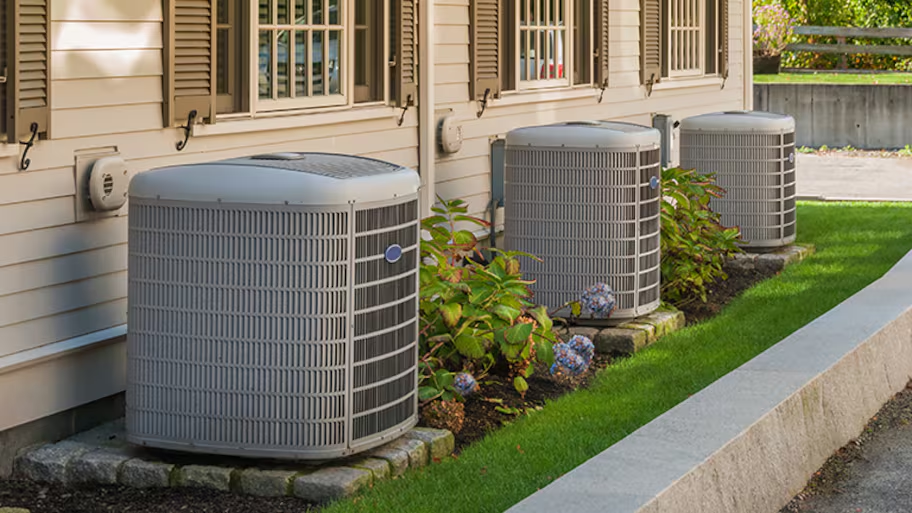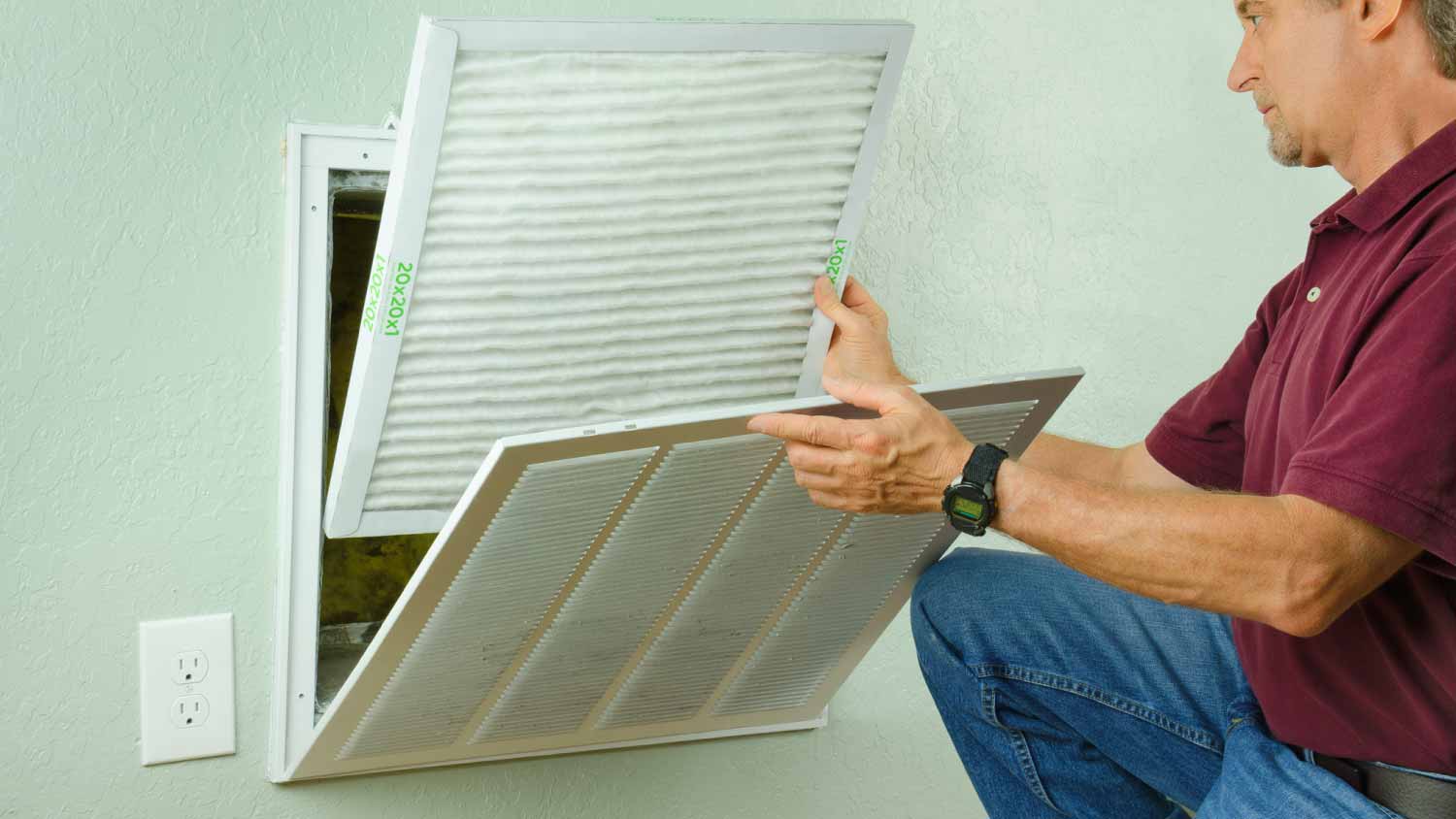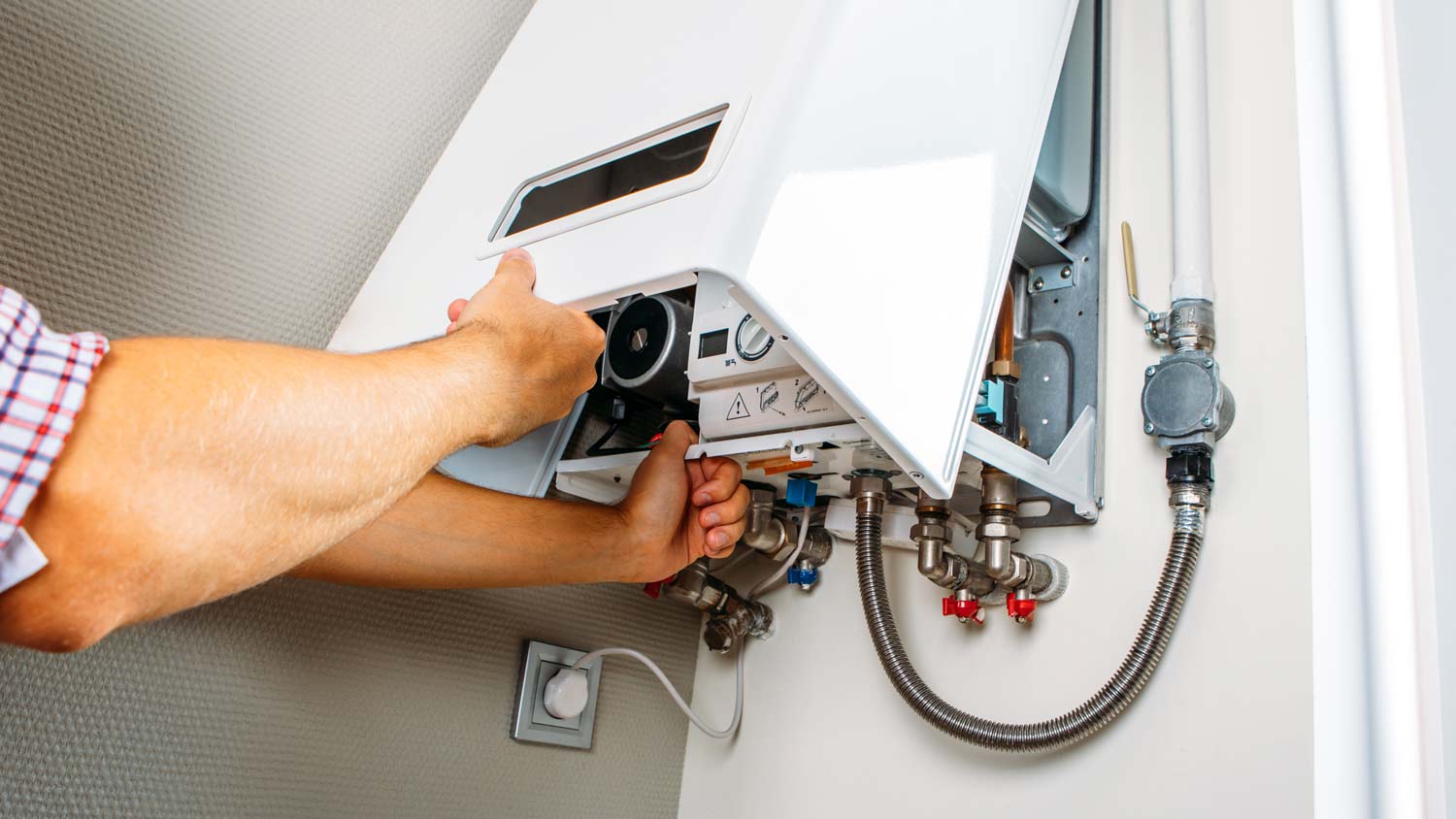
HVAC replacement costs depend on a lot of factors, like unit type, size, and labor. See what you can expect to pay for HVAC replacement here.
Clean air and comfort don’t just happen


AC filters capture large and small particles that would otherwise circulate throughout your HVAC system and air.
Running your HVAC system without a filter could allow toxins to circulate and HVAC components to wear out quicker.
Construction areas, smokers’ homes, and high pollution areas should always use filters.
You’re diligent about HVAC maintenance, including swapping out your AC filters every one to three months. But imagine you’ve just discarded the old one and you realize that you forgot to buy a new one when you ran errands last week. At this point, you may be wondering if you can run your AC without a filter. Here’s why that’s a no-go.
The short answer is, technically, yes. You can run your AC without a filter. However, experts recommend that you never actually do this. Call any local HVAC pro, and they’ll tell you the same thing.
Air filters are an essential component of your HVAC system. Without a filter, dirt and contaminants can enter your air conditioning system, potentially causing damage, creating an unhealthy environment, and even hiking up your energy bills.
An air filter acts as a barrier that captures airborne particles and prevents them from circulating through your AC system and into your living spaces. This not only improves indoor air quality but also protects the internal components of your HVAC system from debris buildup, ensuring optimal performance and longevity.
Running your AC without a filter for even a short period can have detrimental effects on your system. While it may seem harmless initially, prolonged operation without a filter can lead to issues. Experts warn against running your AC without a filter for more than a couple of days.
Without a filter in your AC system, you expose yourself to several risks that can impact both your comfort and your wallet.
One of the most significant risks of running your AC without a filter is poor indoor air quality. Without filtration, dust, pollen, and other allergens can freely circulate in your home, leading to respiratory issues and allergy flare-ups.
Debris that bypasses the filter can accumulate in your air ducts, leading to clogs and restrictions in airflow. This can strain your HVAC system and result in costly repairs or even premature system failure.
Without a filter to capture debris from the air, your AC's condensate line can become clogged, leading to a buildup of moisture in your system. This excess moisture can create a breeding ground for mold and mildew, posing health risks and potentially causing water damage to your home.
Debris entering your AC system can also affect the operation of critical components such as the refrigerant tubes. Over time, this can lead to reduced efficiency and cooling capacity, ultimately resulting in costly repairs or reduced comfort in your home.
A clogged or damaged AC system must work harder to maintain your desired temperature, leading to increased energy consumption and higher utility bills. Additionally, poor maintenance can shorten the life span of your HVAC equipment, leading to costly replacements.
While it's essential for all homeowners to use an AC filter, certain circumstances make it even more critical to maintain clean indoor air.
If you live in an area with high levels of outdoor pollutants, such as pesticides, radon, or urban pollution, a quality air filter is essential for protecting your indoor air quality. Similarly, during wildfire seasons, airborne particulates can pose a serious threat to respiratory health.
Indoor pollutants such as tobacco smoke, excessive dust, and pet dander can also degrade your home’s air quality. In these situations, a high-efficiency air filter can help remove allergens and improve indoor air quality.
During nearby construction or renovation projects, excessive dust and debris can infiltrate your home's air supply. In these cases, you need to change your filters more often to prevent buildup in your HVAC system. Sometimes, you may need to install temporary air filtration systems to maintain clean indoor air when construction is happening close by.

Replace your AC filter regularly to maintain optimal HVAC performance and indoor air quality. Here's a simple guide to help you replace your filter:
Select the right filter: Choose a filter with the appropriate MERV (Minimum Efficiency Reporting Value) rating for your HVAC system. Higher MERV ratings indicate better filtration efficiency but may also restrict airflow if they’re not compatible with your system.
Locate the filter: You can find your AC filter near the return air duct or furnace unit. Refer to your HVAC system's manual for specific instructions on filter replacement.
Turn off the power: Before replacing the filter, turn off the power to your HVAC system to prevent accidents or damage to the equipment.
Remove the old filter: Carefully remove the old filter from its housing, taking note of the HVAC filter’s size and orientation for proper replacement.
Install the new filter: Insert the new filter into the housing, ensuring it fits snugly and securely. Pay attention to the airflow direction indicated on the filter to ensure proper installation.
Turn on the power: Once the new filter is in place, restore power to your HVAC system and monitor its performance for any signs of issues or restrictions in airflow.
If you're unsure about replacing your AC filter or encounter any difficulties, don't hesitate to seek assistance from a local AC repair company.
From average costs to expert advice, get all the answers you need to get your job done.

HVAC replacement costs depend on a lot of factors, like unit type, size, and labor. See what you can expect to pay for HVAC replacement here.

What you’ll pay for furnace repairs depends on many factors, including what parts are malfunctioning, where you live, and even the time of day. Here’s a breakdown of what can go wrong with your furnace and the cost to fix those issues.

Heating and cooling system on the fritz? Discover the factors that go into HVAC repair costs and how you can save money on this crucial home update.

If you need to repair a gas boiler or radiator heating system, you should first talk to a pro. Here are the top radiator repair questions you should ask.

Prepping your furnace can extend the life of your unit and stop costly repairs. Follow these furnace maintenance tips for a warm, stress-free winter.

Take several factors into consideration when upgrading your HVAC system. Our guide will help you choose the right HVAC upgrade.